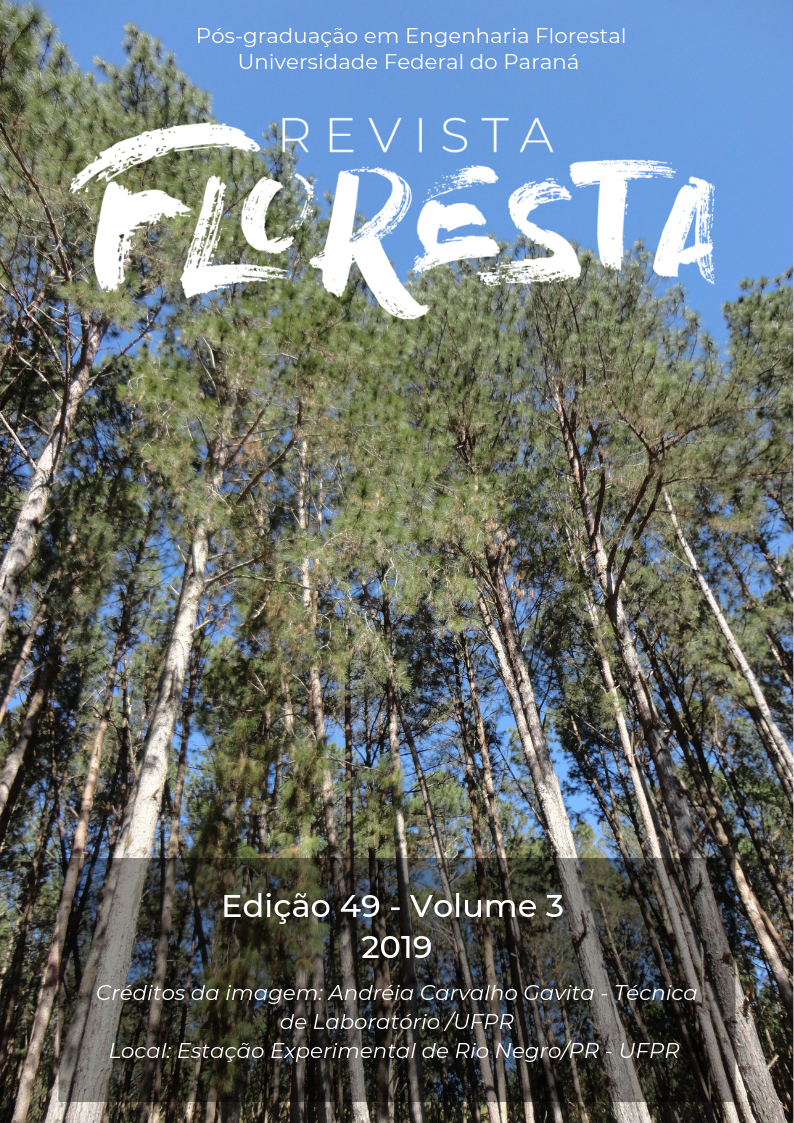BARBECUE CHARCOAL ANATOMY OF MARKETED BRANDS IN THE METROPOLITAN REGION OF FLORIANÓPOLIS, STATE OF SANTA CATARINA, BRAZIL
DOI:
https://doi.org/10.5380/rf.v49i3.58686Palavras-chave:
domestic use, wood anatomy, energy propertiesResumo
The objective of this study was to verify the occurrence of adulteration in marketed charcoal as being of black wattle (Acacia mearnsii De Wild.) in the metropolitan region of Florianópolis, state of Santa Catarina, Brazil. The energetic quality of charcoal was also evaluated for domestic use. Ten brands were analysed which indicated that the contents of the package consisted of charcoal of black wattle. A total of 75 charcoal samples per brand were analysed (total of 750 samples), which were broken and manually oriented. The friability testing was performed based on the ease of manual breaking, receiving grades of 1 (difficult), 2 (moderately difficult) and 3 (easy) to break. Qualitative and quantitative anatomical parameters were described according to the International Association of Wood Anatomists Committee. The energetic properties analysed were proximate analyse and gross calorific value. The anatomical characters of the wood remained recognizable after the carbonization process, allowing to establish that all the analysed brands had adulteration in the composition of the species contained in the packages. The variability of the species that composed each brand was raised, in which seven groups of similarity were categorized, the samples were grouped based on common anatomical characters. The ease of friability of charcoal by manual breaking was directly related to the higher quality of the charcoal. All brands of charcoal had low quality for use in cooking food.
Downloads
Publicado
Como Citar
Edição
Seção
Licença
Direitos Autorais para artigos publicados nesta revista são do autor, com direitos de primeira publicação para a revista. Em virtude da aparecerem nesta revista de acesso público, os artigos são de uso gratuito, com atribuições próprias, em aplicações educacionais e não-comerciais.A revista, seguindo a recomendações do movimento Acesso Aberto, proporciona acesso publico a todo o seu conteudo, seguindo o principio de que tornar gratuito o acesso a pesquisas gera um maior intrcambio global de conhecimento.
Conteúdos do periódico licenciados sob uma CC BY-NC-SA 4.0



